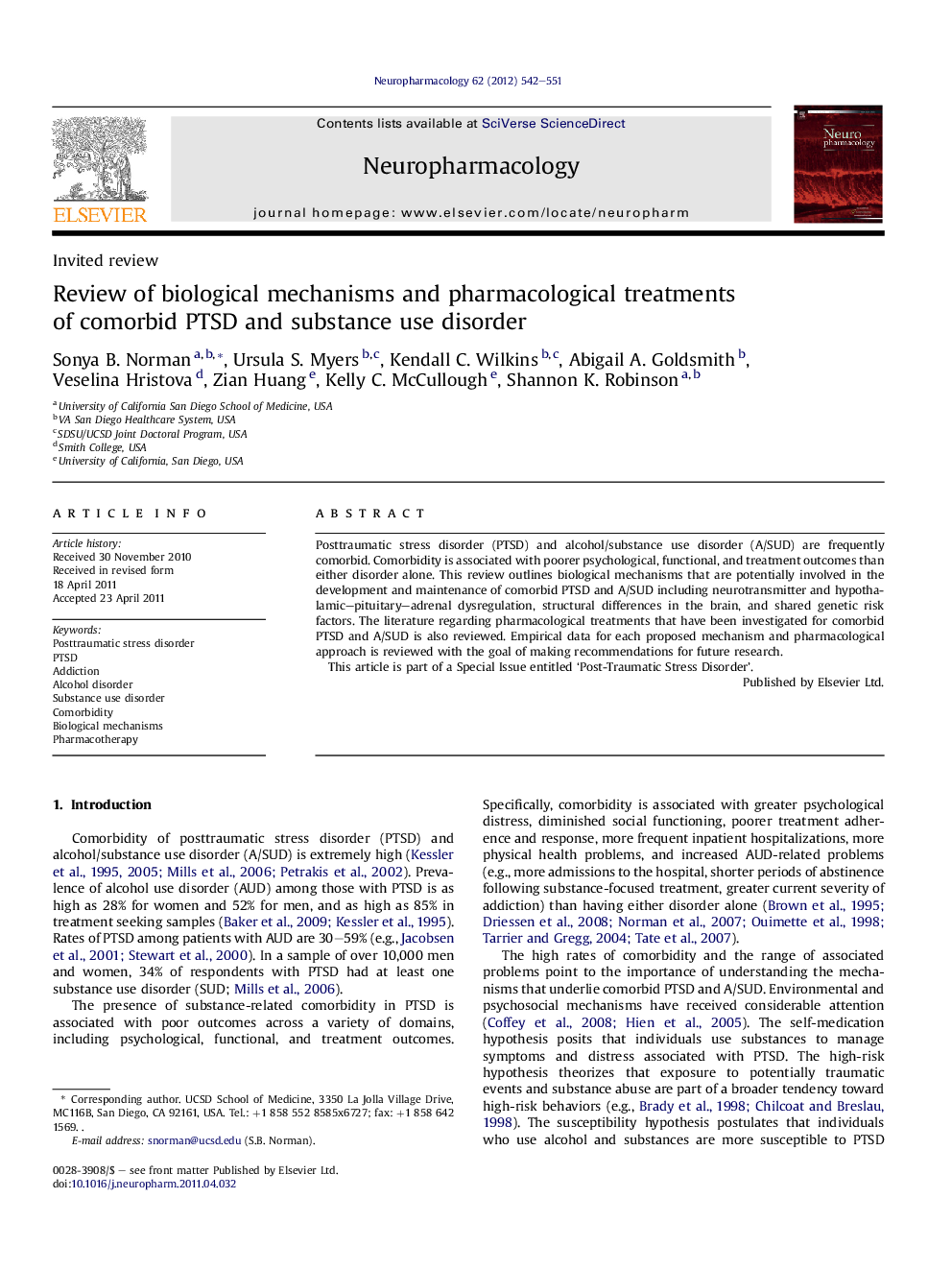| Article ID | Journal | Published Year | Pages | File Type |
|---|---|---|---|---|
| 2493752 | Neuropharmacology | 2012 | 10 Pages |
Posttraumatic stress disorder (PTSD) and alcohol/substance use disorder (A/SUD) are frequently comorbid. Comorbidity is associated with poorer psychological, functional, and treatment outcomes than either disorder alone. This review outlines biological mechanisms that are potentially involved in the development and maintenance of comorbid PTSD and A/SUD including neurotransmitter and hypothalamic–pituitary–adrenal dysregulation, structural differences in the brain, and shared genetic risk factors. The literature regarding pharmacological treatments that have been investigated for comorbid PTSD and A/SUD is also reviewed. Empirical data for each proposed mechanism and pharmacological approach is reviewed with the goal of making recommendations for future research.This article is part of a Special Issue entitled ‘Post-Traumatic Stress Disorder’.
► Frequent comorbidity and poor prognoses make understanding PTSD and SUD important. ► Neurotransmitters, HPA, brain structure, genetic risk involved in both disorders. ► Stress and negative affectivity link theories of PTSD and A/SUD comorbidity.
